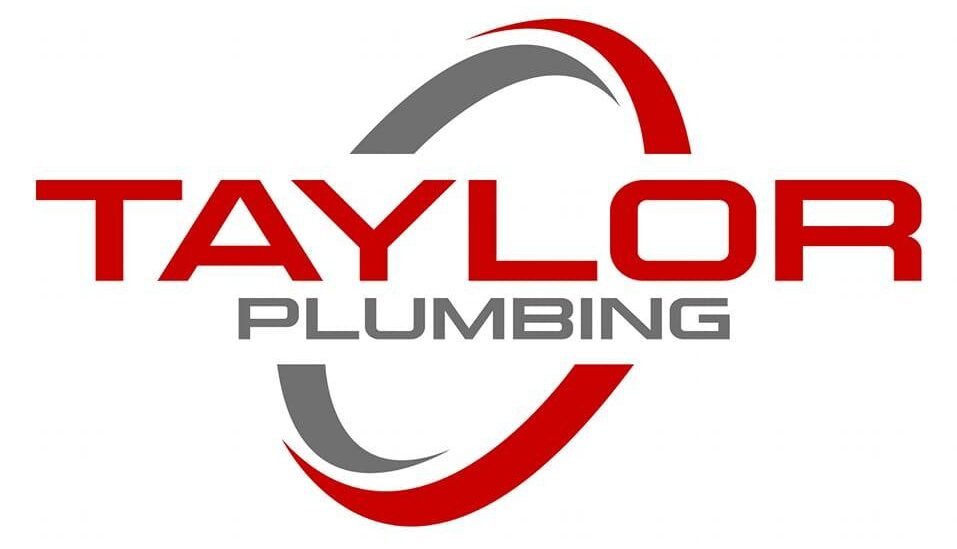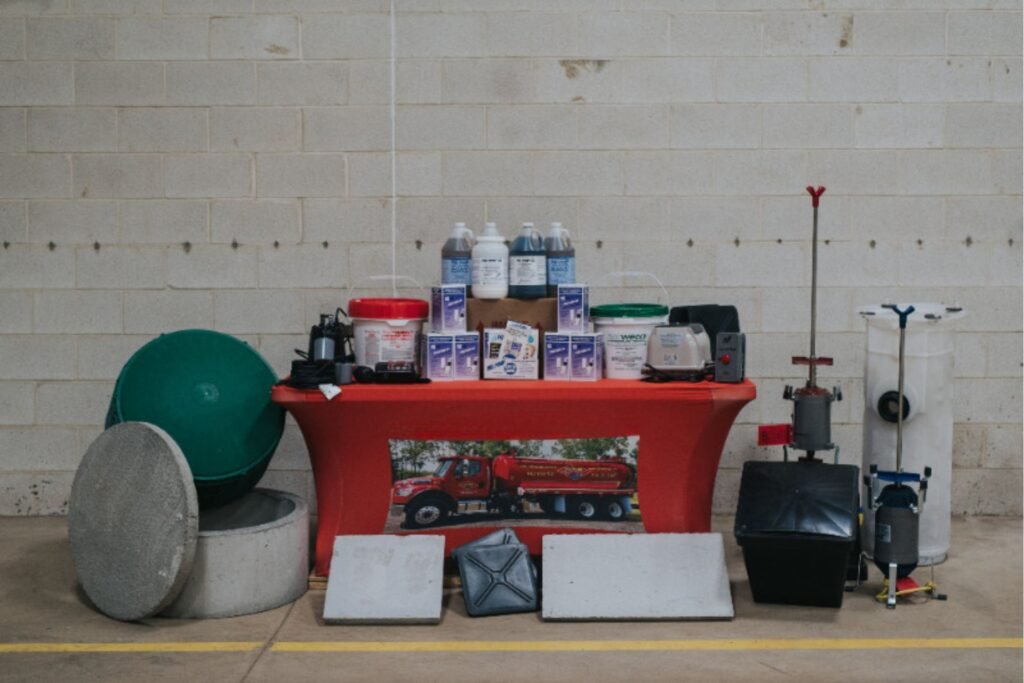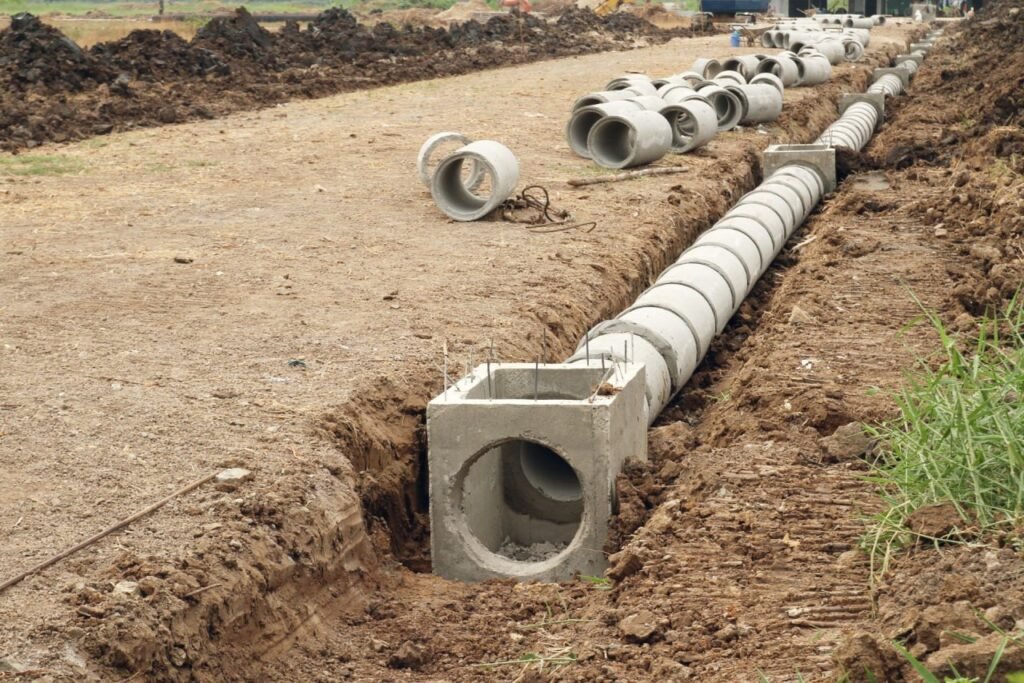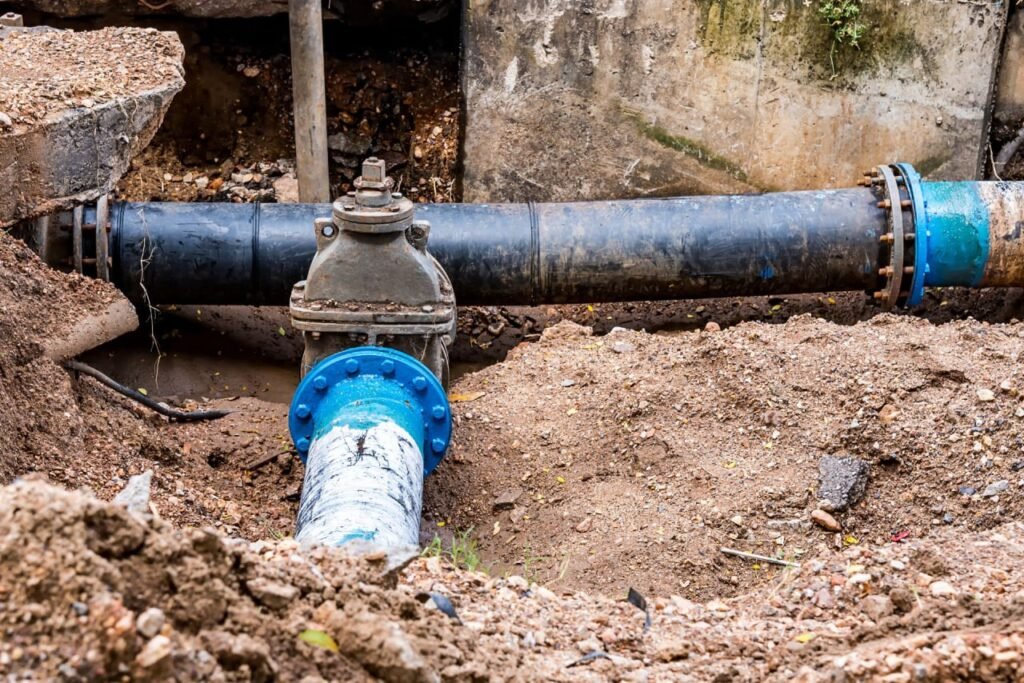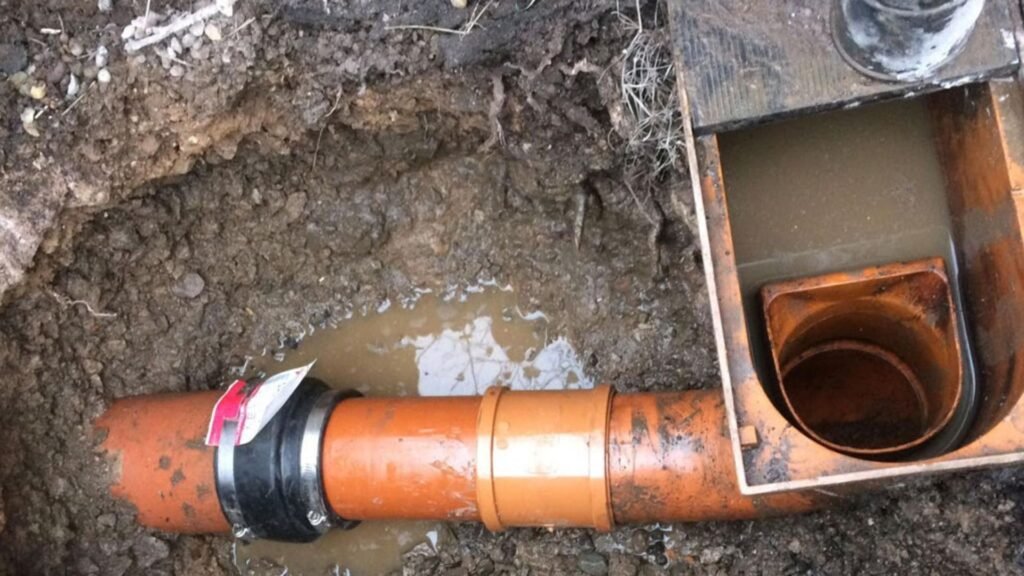Welcome to our guide on keeping your septic system in top shape with safe cleaning products. If you’re a homeowner concerned about the impact of everyday cleaning on your septic tank, you’re in the right place. Maintaining a healthy septic system is crucial for avoiding costly repairs and environmental harm, and choosing the right products plays a significant role in this process. In this post, we’ll introduce you to eight cleaning products that are not only effective but also safe for your septic system, ensuring that your home stays clean while protecting the delicate balance of bacteria essential for a properly functioning septic tank.
The best cleaning products for septic tanks are those that are biodegradable, non-toxic, and free from harsh chemicals like bleach and ammonia. Top options include natural dish soaps, enzyme-based drain cleaners, and vinegar-based solutions, which effectively clean while preserving the balance of beneficial bacteria in your septic system. Using these septic-safe products helps prevent clogs, odors, and costly repairs, ensuring your system runs smoothly.
Table of Contents
Understanding Septic Systems
How Septic Systems Work
Septic systems are a crucial component in many homes, especially in rural areas where municipal sewage systems aren’t available. Essentially, a septic system is an on-site waste treatment facility. The process begins when wastewater from your home—including water from sinks, showers, toilets, and appliances—flows into the septic tank. Here, the heavier solids settle at the bottom, forming a layer of sludge. Meanwhile, lighter materials such as oils and grease float to the top, creating a scum layer.
In the middle, you’ll find a relatively clear layer of liquid, known as effluent, which contains bacteria that play a vital role in breaking down the organic matter in the wastewater. These bacteria are the unsung heroes of the septic system, working tirelessly to decompose solids and reduce the volume of waste. The treated effluent then moves into a drain field or leach field, where it slowly seeps into the soil, undergoing further natural filtration before eventually joining the groundwater.
The entire process is delicate and relies on a balanced bacterial ecosystem. Disrupting this balance can lead to significant problems, which is why understanding how your septic system works is the first step in ensuring its longevity and efficiency.
The Importance of Using Safe Products
The bacteria in your septic tank are essential for breaking down waste and maintaining a functioning system. However, these bacteria are highly sensitive to the chemicals introduced into the system. Using harsh cleaning products, bleach, or non-biodegradable materials can disrupt this bacterial balance, leading to a cascade of issues.
When you use harsh chemicals, they don’t just get flushed away—they end up in your septic tank, where they can kill the beneficial bacteria necessary for breaking down waste. This disruption can cause the system to become less efficient, leading to a buildup of sludge and scum. Over time, this can result in clogged pipes, backed-up systems, and the need for costly repairs or even replacement.
On the other hand, using septic-safe products helps maintain the delicate ecosystem within your tank. These products are designed to break down easily without harming the bacteria, ensuring that your system continues to function smoothly. By choosing the right products, you’re not only protecting your septic system but also contributing to a healthier environment.
Common Issues with Unsafe Products
Using products that aren’t septic-safe can lead to a host of problems, some of which can be quite severe. One of the most common issues is clogging. When the bacteria in your septic tank are unable to break down waste efficiently, solids can build up more quickly than usual. This can cause clogs in your system’s pipes or even block the drain field, leading to backups and overflows.
Foul odors are another telltale sign that something is wrong with your septic system. If you notice persistent smells coming from your drains or around your septic tank, it could indicate that the bacteria are struggling to manage the waste due to the presence of harmful chemicals. These odors are not only unpleasant but can also signal a more serious underlying issue that needs to be addressed.
Finally, the use of improper cleaning products can lead to system failures. In extreme cases, the balance of your septic system can be so disrupted that it fails to process waste altogether. This can result in the need for emergency services, costly repairs, or even the installation of a new system.
To avoid these problems, it’s crucial to use products specifically designed for septic systems. By doing so, you help ensure the longevity of your system, prevent costly repairs, and maintain a healthy environment around your home. Understanding the importance of septic-safe products and being mindful of what you flush or pour down your drains can save you from a lot of headaches in the long run.
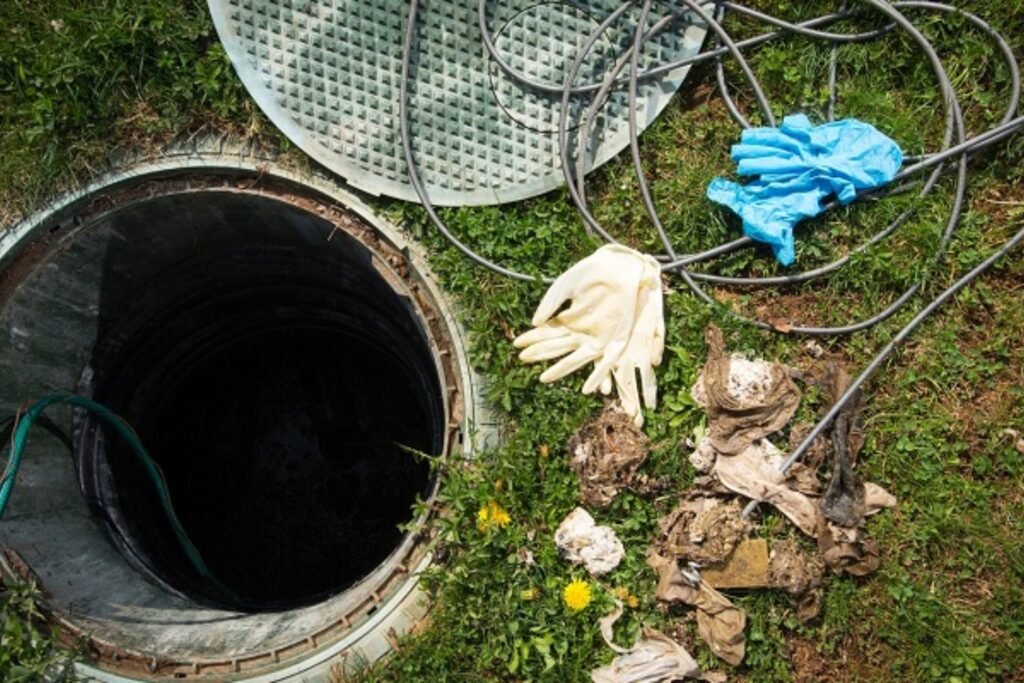
Criteria For Safe Cleaning Products
When choosing cleaning products for your home, especially if you have a septic system, it’s crucial to understand what makes a product safe for both your system and the environment. Septic systems rely on a delicate balance of bacteria to break down waste, so the wrong cleaning products can disrupt this balance, leading to costly repairs or replacements. Here’s what you should look for:
Biodegradability
Biodegradable products are designed to break down naturally into harmless substances. For septic systems, this is a crucial factor because biodegradable cleaners reduce the risk of harmful build-up in your septic tank. These products decompose into simpler, non-toxic compounds that won’t harm the beneficial bacteria in your septic system. When these bacteria remain healthy and active, they efficiently break down solid waste, preventing clogs and ensuring the system runs smoothly. By choosing biodegradable products, you’re not just protecting your septic system—you’re also contributing to environmental sustainability by reducing the release of harmful chemicals into the soil and water.
Non-Toxic Ingredients
The use of non-toxic, natural ingredients in cleaning products is essential for maintaining a healthy septic system. Many conventional cleaning products contain harsh chemicals that can kill the bacteria in your septic tank. When these bacteria are diminished, the waste in your system doesn’t break down properly, leading to blockages, foul odors, and potential system failure. Non-toxic ingredients, such as vinegar, baking soda, and essential oils, offer effective cleaning power without the harmful side effects. These natural alternatives are gentle on your septic system and are safe for your family, pets, and the environment.
Low Phosphorus Content
Phosphorus is a nutrient that can be found in many cleaning products, particularly those designed to break down grease and grime. However, high levels of phosphorus can be detrimental to your septic system. When excess phosphorus enters the system, it can promote the growth of algae in the drain field, which may clog the soil and reduce the efficiency of the wastewater treatment process. This can lead to system backups and potentially contaminate groundwater. Opting for cleaning products with low phosphorus content minimizes this risk, ensuring that your septic system continues to function properly and that the surrounding environment remains protected.
No Harsh Chemicals
Avoiding harsh chemicals such as bleach, ammonia, and chlorine is critical for the health of your septic system. These chemicals can be very effective at killing germs and cleaning surfaces, but they also kill the beneficial bacteria in your septic tank. Without these bacteria, your system can’t break down waste effectively, leading to the accumulation of solids and the potential for system failure. Moreover, these chemicals can leach into the surrounding soil, causing environmental damage. Instead, look for cleaning products labeled as septic-safe, which are free from these harmful ingredients and designed to work in harmony with the natural processes of your septic system.
By choosing cleaning products that meet these criteria, you’re taking important steps to protect both your septic system and the environment. These products help maintain the balance of bacteria needed for your system to function efficiently, reduce the risk of environmental contamination, and ensure that your home remains safe and clean.
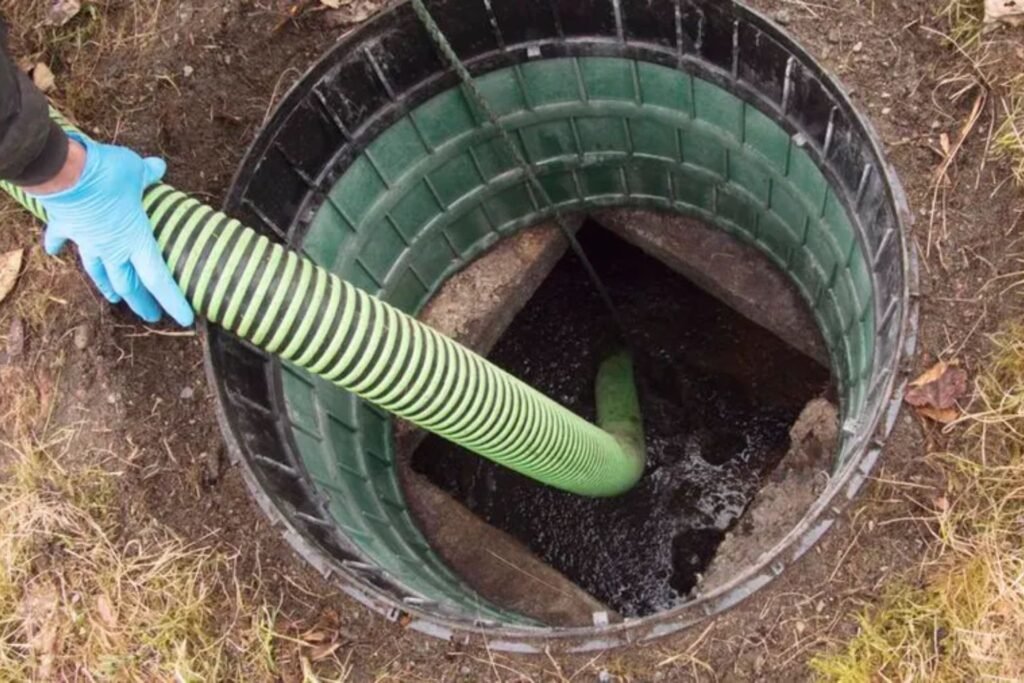
The Top 8 Safe Cleaning Products For Septic Tanks
When maintaining a septic system, choosing the right cleaning products is crucial to prevent any disruption to its delicate balance. Here are eight cleaning products that are not only effective but also safe for your septic tank.
Product 1: Biodegradable Multi-Purpose Cleaner
Description
Biodegradable multi-purpose cleaners are becoming increasingly popular for those looking to maintain both a clean home and a healthy septic system. These cleaners are formulated without harsh chemicals that can disrupt the bacterial balance in septic tanks. They typically contain natural ingredients like plant-based surfactants, which effectively break down dirt and grime on a variety of surfaces.
Benefits
The versatility of a biodegradable multi-purpose cleaner is one of its greatest strengths. Whether you’re cleaning countertops, floors, or bathroom surfaces, this product can handle it all. What sets it apart is its safety for septic systems; it breaks down naturally and doesn’t introduce harmful chemicals into your tank, ensuring that your septic system remains balanced and functional.
Product 2: Natural Dish Soap
Description
Natural dish soaps are an excellent choice for households with septic systems. These soaps are made from ingredients like coconut oil, vegetable glycerin, and essential oils, which are not only effective at cutting through grease but also gentle on your septic tank. Unlike traditional dish soaps that may contain phosphates and other harmful chemicals, natural dish soaps are designed to be biodegradable and environmentally friendly.
Benefits
Using a natural dish soap means you can wash your dishes thoroughly without worrying about the impact on your septic system. Its grease-cutting capabilities are impressive, ensuring your dishes are spotless. At the same time, its gentle formulation ensures that your septic system remains unharmed, promoting a long-lasting and efficient system.
Product 3: Septic-Safe Toilet Bowl Cleaner
Description
A septic-safe toilet bowl cleaner is specifically formulated to clean your toilet effectively while being safe for your septic system. These cleaners are free from bleach and other harsh chemicals that could kill the beneficial bacteria in your septic tank. Instead, they often use natural acids and other biodegradable ingredients to remove stains and disinfect your toilet.
Benefits
This type of toilet bowl cleaner is highly effective at keeping your toilet sparkling clean without compromising the health of your septic system. By choosing a septic-safe product, you avoid introducing harmful chemicals that could disrupt the bacterial balance, ensuring your septic system functions efficiently for years to come.
Product 4: Eco-Friendly Laundry Detergent
Description
Eco-friendly laundry detergents are formulated to be tough on stains but gentle on septic systems. These detergents are usually free from phosphates, synthetic fragrances, and other harmful chemicals that can disrupt the bacteria in your septic tank. Instead, they rely on natural enzymes and plant-based ingredients to clean your clothes.
Benefits
Using an eco-friendly laundry detergent helps maintain a balanced septic environment while ensuring your clothes are thoroughly cleaned. The gentle formulation means you can do laundry without worrying about harming the beneficial bacteria in your septic system, which are crucial for breaking down waste.
Product 5: Vinegar-Based Cleaner
Description
Vinegar is a natural, septic-safe alternative to many chemical cleaners. Its acidic nature makes it effective at cutting through grease, grime, and even mineral deposits. Vinegar can be used on a variety of surfaces, including glass, countertops, and floors, making it a versatile cleaning agent.
Benefits
The benefits of using vinegar as a cleaner are numerous. Not only does it effectively clean and deodorize, but it also does so without harming your septic system. Since vinegar is biodegradable and breaks down easily, it’s completely safe for septic tanks, ensuring that your system remains in good working order.
Product 6: Enzyme-Based Drain Cleaner
Description
Enzyme-based drain cleaners are a safe and effective way to maintain clear drains and a healthy septic tank. These cleaners use natural enzymes to break down organic matter, such as hair, grease, and food particles, which can cause clogs. Unlike chemical drain cleaners, enzyme-based cleaners are non-toxic and biodegradable, making them ideal for septic systems.
Benefits
Enzyme-based drain cleaners work by breaking down organic materials into smaller, more manageable particles, preventing clogs without harming your septic system. The natural enzymes are safe for the beneficial bacteria in your tank, helping maintain a balanced and efficient system.
Product 7: Baking Soda
Description
Baking soda is a household staple that doubles as a gentle abrasive and deodorizer. Its mild alkaline properties make it effective at neutralizing acids and removing stains, making it a great option for cleaning everything from kitchen surfaces to bathroom fixtures. Additionally, baking soda is completely safe for septic systems.
Benefits
Using baking soda in your cleaning routine ensures that you maintain a clean home while also protecting your septic system. It’s a versatile product that not only cleans but also deodorizes, ensuring that your home smells fresh without introducing harmful chemicals into your septic system.
Product 8: Oxygen Bleach
Description
Oxygen bleach is a safer alternative to chlorine bleach and is particularly suitable for households with septic systems. It is made from sodium percarbonate, which breaks down into water, oxygen, and soda ash when dissolved. This makes it a powerful cleaner that’s also non-toxic and biodegradable.
Benefits
Oxygen bleach is highly effective at removing stains and brightening fabrics, all without the harshness of chlorine bleach. Since it breaks down into harmless substances, it doesn’t harm the beneficial bacteria in your septic system, making it a safe choice for maintaining both your laundry and your septic tank.
By carefully selecting cleaning products that are safe for septic systems, you can maintain a clean and healthy home environment without compromising the functionality of your septic tank. These products are designed to work effectively while preserving the delicate balance of bacteria that keeps your septic system running smoothly.
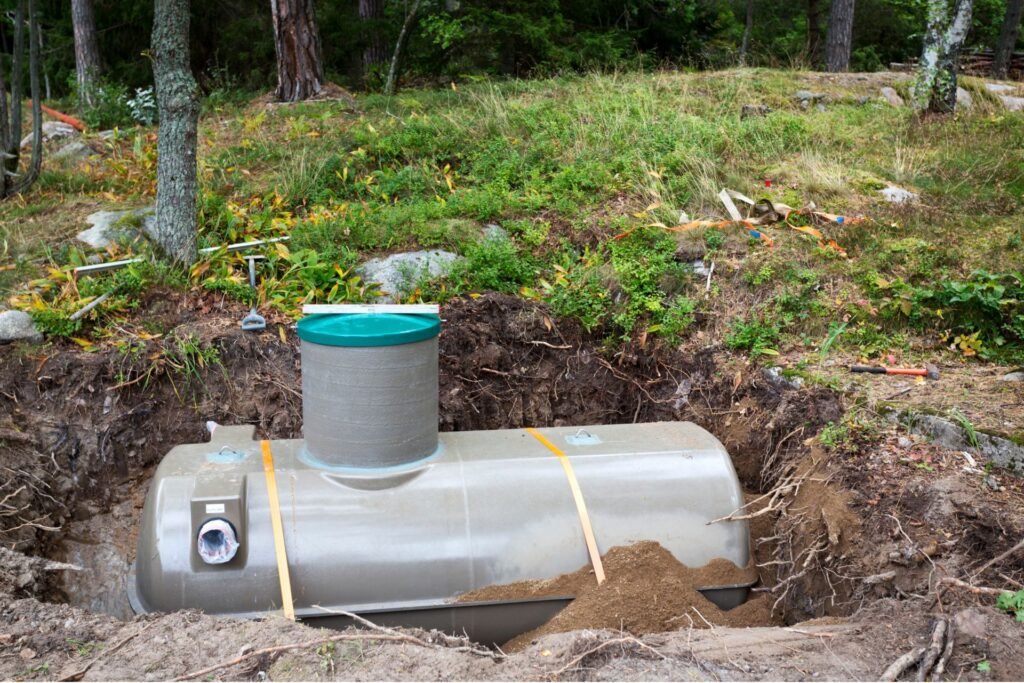
Tips For Maintaining A Healthy Septic System
Maintaining a healthy septic system is crucial for its long-term functionality and for preventing costly repairs. Below are practical tips that will help ensure your septic system remains in optimal condition.
Regular Pumping
One of the most important aspects of septic system maintenance is regular pumping. Over time, solids accumulate in the tank, and if not removed, they can cause blockages or even lead to system failure. The frequency of pumping depends on the size of your tank and the number of people in your household. However, a general rule of thumb is to have your septic tank pumped every three to five years. Regular pumping not only helps maintain the system’s efficiency but also extends its lifespan.
Water Conservation
Water conservation plays a significant role in maintaining a healthy septic system. Excessive water use can overload the system, leading to backups and potential system failure. Simple practices like fixing leaky faucets, installing water-efficient fixtures, and spreading out laundry loads can significantly reduce the strain on your septic system. By conserving water, you minimize the risk of overwhelming the system, which is particularly important during periods of heavy use, such as holidays or large gatherings.
Avoiding Harmful Products
It’s essential to be mindful of what you flush down the drains and toilets. Many household products, including chemical cleaners, paints, and even some types of toilet paper, can harm the beneficial bacteria that break down waste in the septic tank. To maintain a healthy septic system, use only septic-safe products. This includes choosing toilet paper that is labeled as septic-safe, using natural or biodegradable cleaners, and avoiding the disposal of grease, oils, and non-degradable items in your drains.
Routine Inspections
Regular inspections are key to identifying potential problems before they become serious. Septic system inspections should be conducted by a professional at least once every three years. During an inspection, the professional will check the levels of scum and sludge in the tank, assess the condition of the system’s components, and ensure everything is functioning correctly. Routine inspections can help detect issues like leaks, cracks, or early signs of wear and tear, allowing for timely repairs and preventing more significant problems down the line.
Maintaining a septic system might seem like a daunting task, but by following these simple tips—regular pumping, conserving water, using septic-safe products, and scheduling routine inspections—you can keep your system in good working order for years to come. Remember, a little maintenance goes a long way in avoiding the headaches and expenses of a septic system failure.
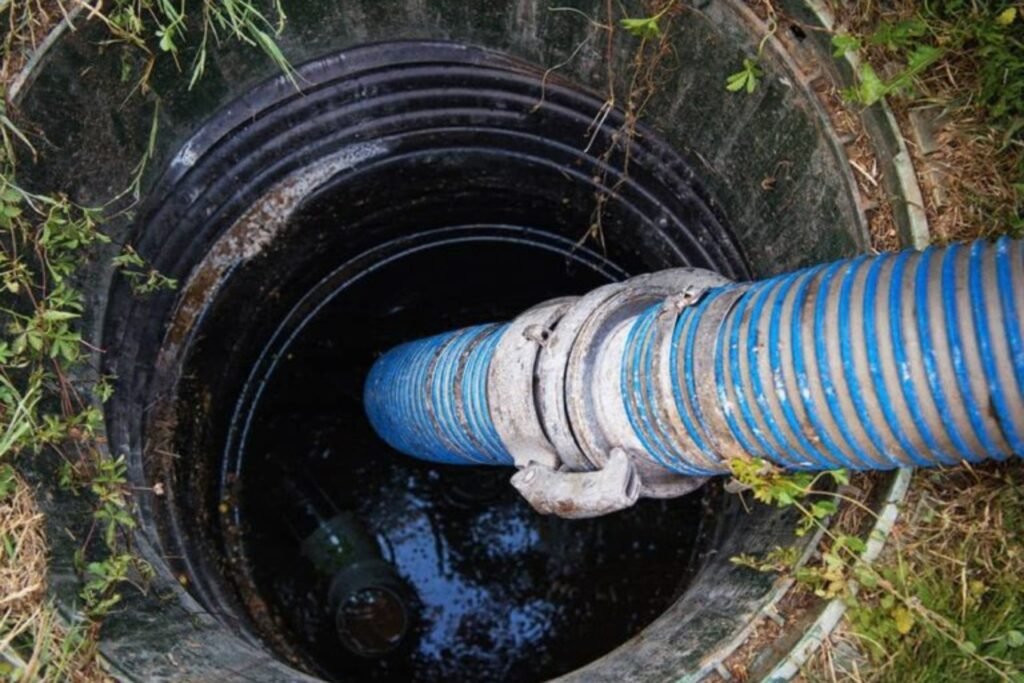
Common Myths About Septic Tanks And Cleaning Products
When it comes to maintaining a septic system, there is no shortage of advice—and along with that advice comes a lot of misinformation. Septic tanks play a crucial role in managing wastewater for many homes, but they require proper care and maintenance to function correctly. In this section, we’ll address some of the most common myths about septic tanks and the cleaning products that can either help or harm your system.
Myth 1: All Natural Products Are Safe
It’s easy to assume that if something is natural, it must be safe for your septic tank. However, this is not always the case. Many people believe that just because a product is labeled as “natural” or “organic,” it won’t negatively impact their septic system. Unfortunately, even natural products can have a detrimental effect.
For instance, while vinegar and baking soda are often promoted as safe alternatives to harsher chemicals, even these natural products can be problematic if used in large quantities. Citrus-based cleaners, another popular natural option, can be particularly harmful due to their acidity, which can disrupt the balance of bacteria in the septic tank. These bacteria are essential for breaking down waste, so when they’re harmed, the entire system can become less effective. The takeaway here? Always research and verify which natural products are genuinely septic-safe before using them.
Myth 2: It’s Okay to Use Bleach Occasionally
Bleach is a powerful cleaning agent, and while it’s highly effective for disinfecting surfaces, it’s not something you want to introduce to your septic system—even occasionally. Some homeowners believe that using bleach in small or infrequent amounts won’t cause any harm, but this is a dangerous misconception.
Bleach can kill the beneficial bacteria in your septic tank that are necessary for breaking down waste. Without these bacteria, the waste in your tank will not decompose as it should, leading to potential clogs and system failure over time. While it’s tempting to use bleach for those deep-cleaning tasks, the risks to your septic system far outweigh the short-term benefits. Opt for septic-safe cleaning products that will disinfect without destroying the balance of your tank’s ecosystem.
Myth 3: Septic Systems Don’t Need Maintenance if Safe Products Are Used
Another common myth is that as long as you’re using septic-safe products, you can skip regular maintenance. This belief can lead to costly mistakes down the road. Septic systems are mechanical structures that require consistent upkeep, regardless of the products used.
Even if you diligently choose safe cleaning agents, your septic tank will still accumulate solids over time, and these solids need to be pumped out periodically to prevent overflow and damage to the system. Regular maintenance, such as pumping and inspections, is crucial to keeping your system functioning efficiently. Neglecting these tasks can result in expensive repairs or even a complete system replacement.
Using safe products is just one part of septic system care, but it does not eliminate the need for regular maintenance. Remember, your septic system is an investment in your home, and taking the time to care for it properly will save you from future headaches and expenses.
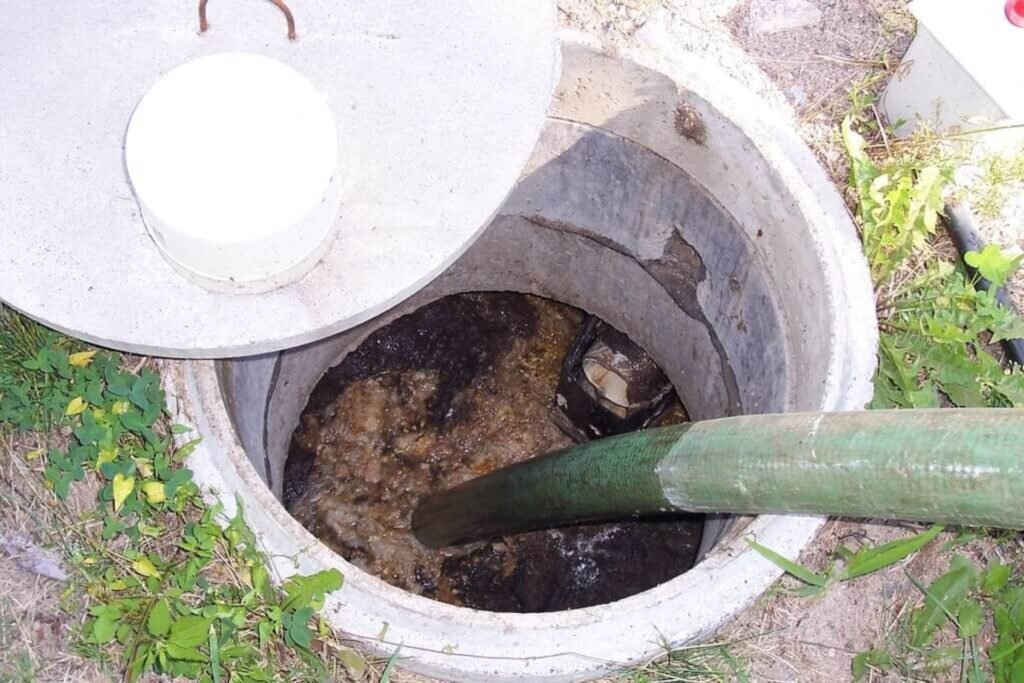
FAQs: About 8 Safe Cleaning Products For Septic Tanks
Can I use regular dish soap with a septic system?
Regular dish soap may contain harsh chemicals and phosphates that can disrupt the bacterial balance in your septic tank. It’s best to use a septic-safe dish soap that is biodegradable and free from harmful ingredients.
How often should I clean my septic tank?
Septic tanks should typically be pumped and inspected every 3 to 5 years, depending on the size of your tank and household usage. Regular cleaning with septic-safe products can help maintain the system between professional cleanings.
What happens if I use non-septic-safe products?
Using non-septic-safe products can kill the beneficial bacteria in your septic tank, leading to clogs, foul odors, and even system failures. This can result in costly repairs or the need for more frequent tank pumping.
Are DIY cleaning solutions safe for septic tanks?
Many DIY cleaning solutions, such as those made with vinegar and baking soda, are safe for septic systems. These natural ingredients are gentle and biodegradable, making them a good choice for maintaining your septic tank.
Can I use bleach occasionally in my septic system?
Even occasional use of bleach can harm the bacteria in your septic tank. It’s better to use oxygen bleach or other septic-safe alternatives that provide effective cleaning without damaging the bacterial ecosystem.
Is it necessary to use special toilet bowl cleaners for septic tanks?
Yes, it is recommended to use toilet bowl cleaners that are specifically labeled as septic-safe. These products are designed to clean effectively without disrupting the bacteria that are crucial for breaking down waste in the septic system.
What are the signs that my septic system is not functioning properly?
Common signs include slow drains, unpleasant odors, pooling water around the drain field, and sewage backups. If you notice any of these issues, it’s important to contact a professional immediately.
How can I prevent clogs in my septic system?
To prevent clogs, avoid flushing non-biodegradable items such as wipes, feminine hygiene products, and paper towels. Additionally, using enzyme-based drain cleaners can help break down organic material that could potentially cause blockages.
Can I use vinegar in large quantities in my septic system?
While vinegar is septic-safe, it should be used in moderation. Large quantities can lower the pH level of your septic tank, potentially affecting the bacteria’s ability to break down waste. It’s best to use vinegar sparingly and diluted with water.
Is it safe to use laundry detergents with a septic system?
Yes, but it’s important to choose laundry detergents that are free from phosphates, chlorine, and other harsh chemicals. Look for products that are labeled as biodegradable and septic-safe to protect your system.
Conclusion
In conclusion, using safe cleaning products is crucial to maintaining a healthy and efficient septic system. It’s easy to overlook the potential harm caused by harsh chemicals, but septic-safe alternatives can make a big difference in keeping your system functioning properly while protecting the environment. We encourage you to take a moment to evaluate the cleaning products in your home and consider making the switch to ones specifically designed for septic systems. With a few small changes, you can ensure the longevity of your septic system and enjoy peace of mind, knowing you’re taking the right steps for a healthier home.
About the Author:
Mike Veail is a recognized digital marketing expert with over 6 years of experience in helping tradespeople and small businesses thrive online. A former quantity surveyor, Mike combines deep industry knowledge with hands-on expertise in SEO and Google Ads. His marketing strategies are tailored to the specific needs of the trades sector, helping businesses increase visibility and generate more leads through proven, ethical methods.
Mike has successfully partnered with numerous companies, establishing a track record of delivering measurable results. His work has been featured across various platforms that showcase his expertise in lead generation and online marketing for the trades sector.
Learn more about Mike's experience and services at https://theleadguy.online or follow him on social media:
